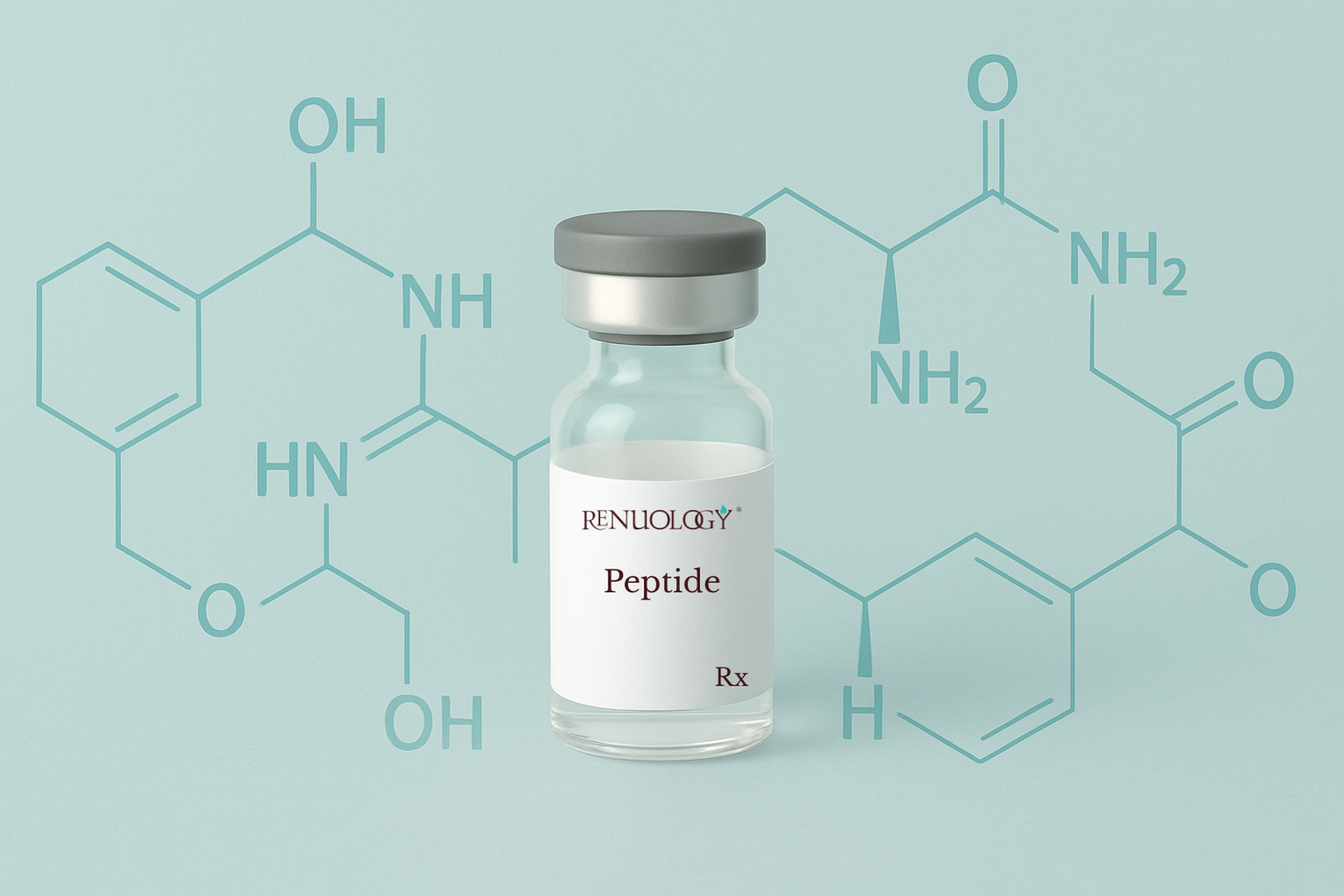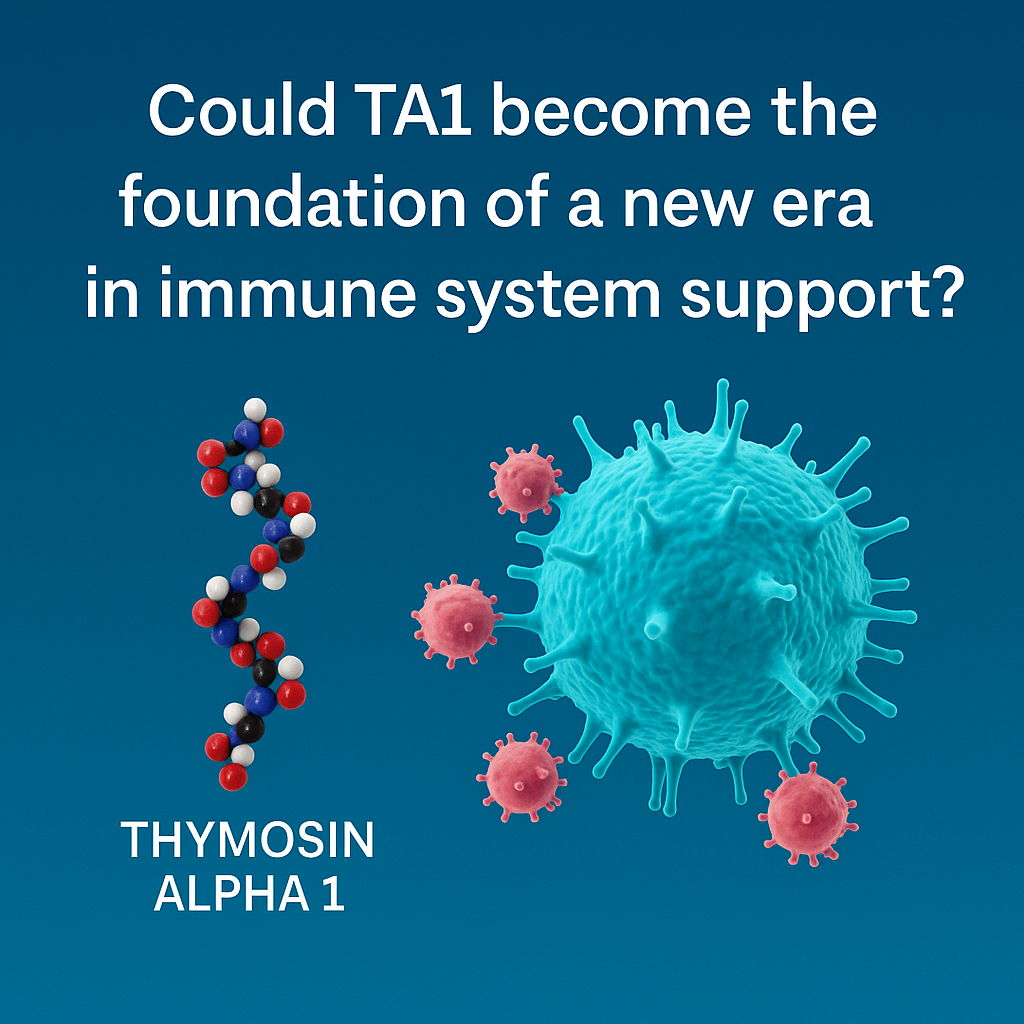Peptides have surged in popularity among wellness enthusiasts and biohackers, often promoted for weight loss and muscle building. But today, more physicians are using medical-grade peptides to treat a range of conditions from immune dysfunction and tissue damage to inflammation and chronic metabolic issues.
This is no longer fringe science. Emerging research and clinical protocols are showing that peptides have the potential to reshape how we approach recovery, regeneration, and preventative medicine.
BPC-157: The Body Protection Compound Leading the Recovery Revolution
Originally derived from gastric proteins, BPC-157 has demonstrated remarkable healing and anti-inflammatory effects in preclinical studies. It is being investigated for everything from tendon and ligament damage to neurological injuries.
In rodent models, BPC-157 accelerated healing of muscle tears, intestinal inflammation, and even nerve damage. It promotes angiogenesis, modulates nitric oxide pathways, and protects vascular integrity making it a promising compound for post-operative recovery, sports medicine, and gastrointestinal health.
Doctors have started incorporating BPC-157 into protocols for soft tissue injury, joint repair, and gut healing. Though large-scale human trials are still needed, anecdotal and case-based outcomes are compelling.
Key Clinical Highlights:
-
Improves healing of ligaments and tendons
-
Reduces inflammation and oxidative stress
-
Enhances recovery in nerve and muscle injuries
-
Promotes vascular repair and endothelial protection
Thymosin Alpha-1: Immune Restoration and Cancer Support
Thymosin Alpha-1 (TA1) is a naturally occurring peptide used globally in the treatment of viral infections, autoimmune conditions, and as an adjuvant therapy in cancer care. It enhances the function of T-cells, natural killer cells, and dendritic cells, helping to restore immune function in compromised patients.
It has been approved for hepatitis B and C in multiple countries and is widely studied for its ability to support immunity in patients undergoing chemotherapy or dealing with chronic infections.
In oncology, TA1 has been shown to reduce the toxicity of conventional cancer treatments, support immune resilience, and may even improve patient outcomes when used as part of an integrative protocol.
Clinical Applications:
-
Immune enhancement in cancer, HIV, and chronic infections
-
Autoimmune modulation
-
Adjunct therapy in chemotherapy to improve immune balance
-
Potential use in long-haul viral recovery
Peptides Go Beyond Weight Loss: A Clinical Toolbox Expanding Fast
While GLP-1 receptor agonists like semaglutide have gained mainstream traction for weight loss and blood sugar regulation, many other peptides are being studied and used in practice for broader health restoration.
| Peptide | Primary Use |
|---|---|
| BPC-157 | Soft tissue and vascular healing |
| Thymosin Alpha-1 | Immune regulation, cancer support |
| MOTS-c | Mitochondrial function, metabolic recovery |
| TB-500 | Systemic repair and stem cell recruitment |
| AOD-9604 | Fat metabolism, body composition optimization |
These compounds offer doctors a novel way to support patients who have not responded to traditional therapies, especially in cases involving chronic fatigue, poor healing, inflammatory disorders, and metabolic dysfunction.
Why Clinicians Are Embracing Peptides
-
Targeted effects with minimal side effects
Peptides are small, biologically active chains of amino acids that often mimic or enhance natural processes. -
Adjunctive use with conventional care
They can be layered into existing medical treatment plans, often enhancing results without replacing standard care. -
Improved patient compliance and outcomes
In many cases, peptides help patients feel better faster, especially in areas where conventional medicine often falls short.
Patient Takeaway
If you are struggling with fatigue, pain, metabolic dysfunction, or recovering from surgery or illness, peptide therapy might be worth exploring under the supervision of a knowledgeable medical provider.
These therapies are not magic bullets, but they offer real promise. And while more human studies are needed, physicians on the front lines are already witnessing their powerful impact.
Final Thoughts
Peptides are no longer niche. They are becoming essential tools in integrative and regenerative medicine. From BPC-157’s tissue-repairing powers to Thymosin Alpha-1’s immune restoration properties, peptides are offering solutions where traditional medications often fall short.
What was once the realm of biohackers is now entering the physician’s toolbox guided by science, not hype. https://renuology.com/pages/rx-peptides




Leave a comment
This site is protected by hCaptcha and the hCaptcha Privacy Policy and Terms of Service apply.